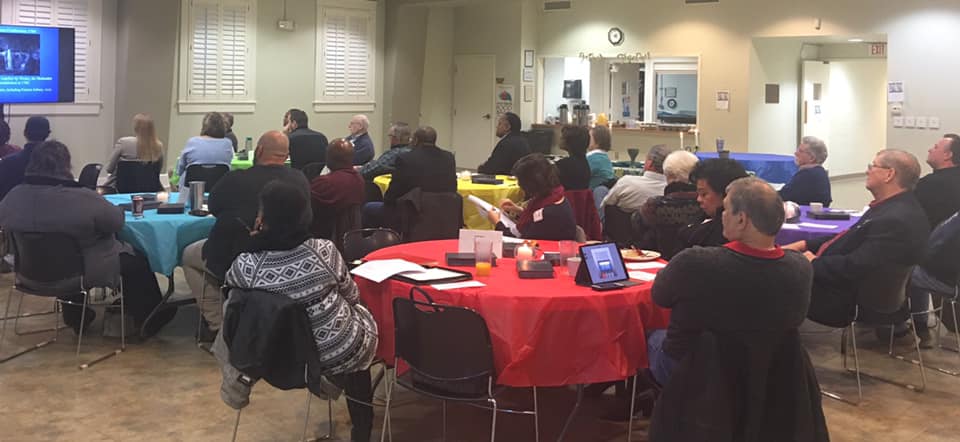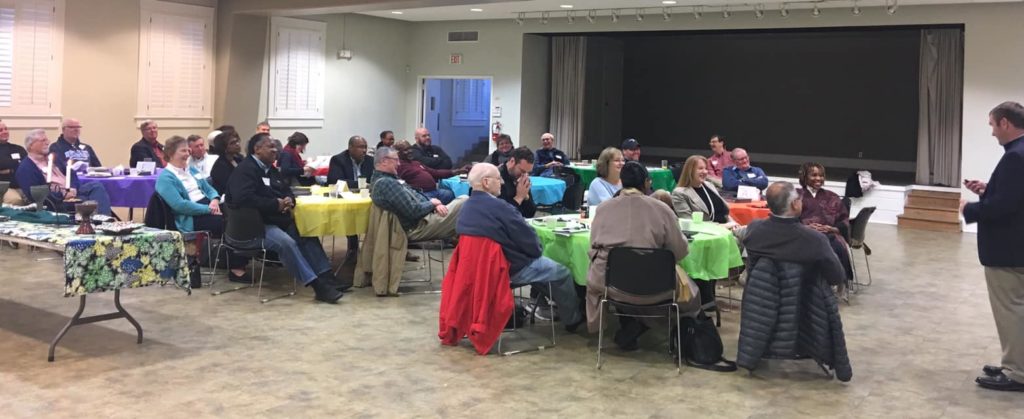On Saturday, January 26th, the Metro District Committee on Ordained Ministry for the Memphis Annual Conference hosted an event on the importance of the local pastor to the United Methodist Church. Memphis Theological Seminary Professor and Director of the Methodist House of Studies, Dr. Michael Turner, gave a presentation on the history of the local pastor in the UMC. The presentation was followed by small-group discussions led by Dr. Ron Johnson and worship facilitated by Rev. Jolinne Balentine-Downey, Pastor at Embury United Methodist Church.
Rev. Dr. Birgitte French, chair of the Metro dCom, said, “According to the Book of Discipline, dCom has to approve local pastors every year, and what we had done in the past was not working. As I spoke with local pastors,
it became obvious that many of them are feeling alone and not part of the clergy fellowship. Most of the part-time local pastors have another job besides the church they serve, and therefore are unable to attend District clergy meetings and Clergy Spiritual Retreats. We knew we needed to bring the local pastors together, spend time with each other, build relationships, and show that we are in ministry together.”

Dr. Turner said, “Since our beginnings in eighteenth-century England, Methodism has relied on the creativity, hard work, and passion of talented lay preachers or, what we now call, local pastors. Today, there is a growing shortage of seminary-trained ordained elder sand deacons. If the United Methodist Church is going to flourish in the years ahead, we have a greater need to recruit, train, and empower local pastors than ever before. In many ways, the future of our tradition relies on the creativity and self-sacrifice of these preachers.”
Attendees said they enjoyed learning more about the history of local pastors in the Methodist church, as well as building relationships with other pastors through discussions.
Charles Elliot, a local pastor who attended the event, said, “The local pastor’s dCom class was refreshing in two ways: it validated the local pastor as a vital part of the overall church success and it confirmed that the issues facing the United Methodist Church will only be overcome with the emphasis on and the significance of the local pastor and small church congregations.”

